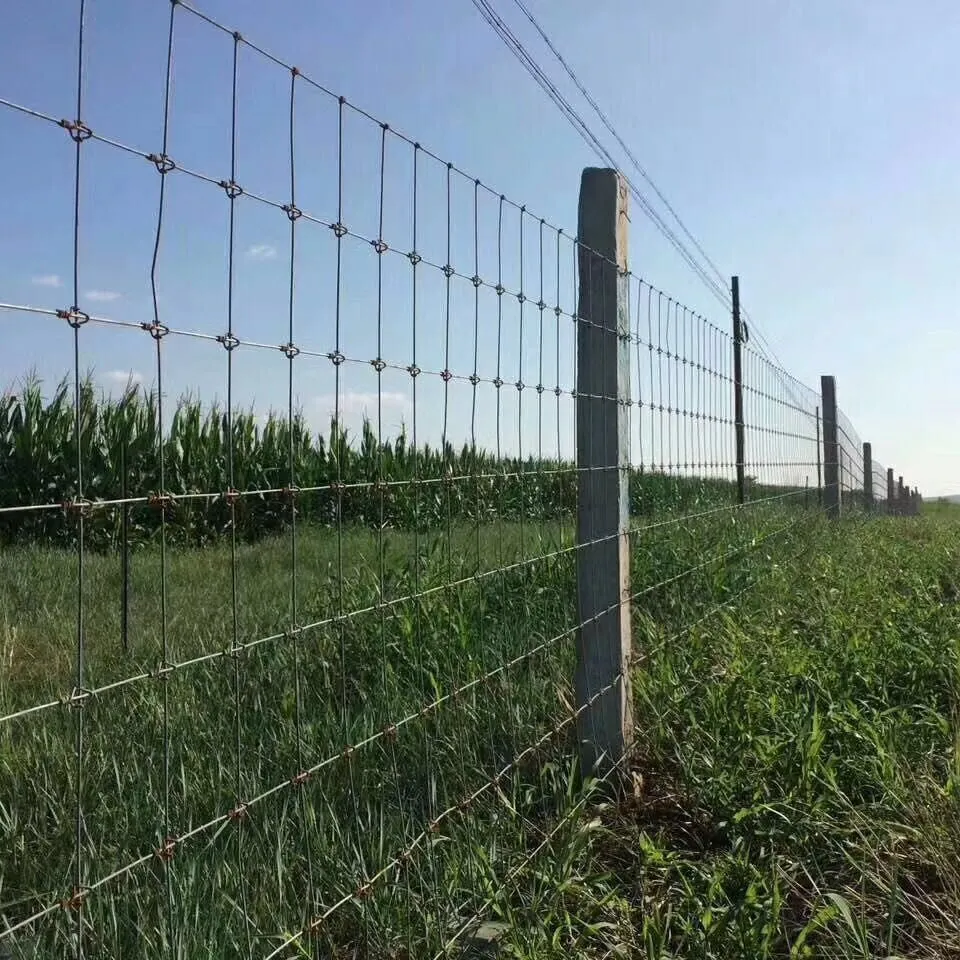joulu . 05, 2024 11:56 Back to list
Choosing the Right Wire Fencing for Your Field Needs
Understanding Field Wire Fences A Comprehensive Overview
Field wire fences serve as a crucial solution for delineating property boundaries, protecting livestock, and managing land usage in agricultural settings. Comprising sturdy wire mesh or fencing material, field wire fences are designed to provide a durable and effective barrier for various agricultural needs. This article explores the components, benefits, and installation of field wire fences, showcasing their importance in agricultural practices.
Composition and Design
Field wire fences are primarily constructed from high-tensile steel wire, which is known for its strength and resilience. The design typically features vertical and horizontal wires woven together in a grid formation, making it versatile for different farming applications. Common configurations include fixed knot and hinged joint, both providing excellent strength and resistance against animal pressure.
The height of field wire fences can vary, commonly ranging from 4 to 6 feet depending on the type of animals being contained. The spacing of the wires is also adjustable, allowing farmers to choose the appropriate style that suits their specific needs—whether they are keeping in smaller animals like goats or larger livestock such as cattle.
Benefits of Field Wire Fencing
1. Durability One of the standout features of field wire fences is their durability. Unlike wood, which can rot or decay over time, steel wire fences are resistant to many environmental factors. This longevity translates to reduced maintenance and replacement costs for farmers and landowners.
2. Cost-Effective Although the initial investment in field wire fencing may be higher compared to other fencing types, its lifespan and low maintenance requirements can make it a more cost-effective solution in the long run. Farmers can save money on replacements and repairs over extended periods.
3. Versatility Field wire fences can be adapted to serve various functions. They can contain livestock, protect crops from wild animals, or simply delineate property lines. Their adaptability makes them a popular choice among farmers and property owners.
4. Visibility Unlike some types of solid fencing, field wire fences allow for ample visibility across the property. This transparency can help farmers keep an eye on their animals and monitor potential threats from wildlife or intruders.
field wire fence

5. Environmental Resistance High tensile wire is less prone to environmental damage compared to wooden structures, which can be affected by moisture and pests. This resistance ensures that the field wire fence maintains its structural integrity over time.
Installation Process
Installing a field wire fence involves several key steps to ensure effectiveness and sturdiness. Initially, property lines should be clearly marked, and survey tools may be necessary to identify boundaries accurately.
1. Post Installation The first step is to set the fence posts. Typically made of treated wood or metal, the posts should be placed at regular intervals—commonly every 10 to 12 feet—sufficiently deep to ensure stability.
2. Attaching Wire Following the post installation, the field wire is unrolled and attached to the posts. This process often involves using fencing staples or wire ties to secure the mesh firmly.
3. Tensioning the Wire After attaching the wire, it should be tensioned properly to prevent sagging or bending. This step is crucial to maintain the fence's structural integrity and effectiveness in containing livestock.
4. Finishing Touches Once the wire is secured and tensioned, additional touches such as gates for access can be installed, completing the fencing project.
Conclusion
Field wire fences are a reliable and versatile solution for agricultural fencing needs. Their durable construction, cost-effectiveness, and adaptability make them an essential component in land management and livestock care. As agricultural practices continue to evolve, the relevance of field wire fencing remains significant, ensuring that farmers can operate efficiently while protecting their land and livestock. Whether for large-scale farming or small homesteading, understanding the benefits and proper installation of field wire fences is indispensable for any landowner.
-
The Role of Field Wire Fence in Grassland Conservation
NewsJul.15,2025
-
Stainless Steel Razor Wire Durability in Coastal Environments
NewsJul.15,2025
-
Enhancing Home Security with Mesh Fences
NewsJul.15,2025
-
Diamond Mesh Wire for Small Animal Enclosures
NewsJul.15,2025
-
Common Wire Nail Tensile Strength Testing for Woodworking
NewsJul.15,2025
-
Barbed Wire Corrosion Resistance Galvanization Techniques
NewsJul.15,2025









